Executive Council 2024-2027
Mission
The Executive Council is elected to manage the strategic and financial affairs of the Federation between the sessions of the General Assembly. Its mission is to boost international cooperation in the areas of mechanism and machine science within IFToMM, embracing the world in the tackling of common technical challenges for a better society.
On the strategic side, the Executive Council is endeavored to fostering and coordinating scientific proceeds, such as communications within the IFToMM Website, Cross-Disciplinary Activity Groups, the exchange of scientific and technical works published by or for IFToMM, and liaising with Member Organizations, Technical Committees, and Permanent Commissions comprising this Federation.
On the financial side, the Executive Council is responsible for administering the finances of the Federation, including assistance to Organizing Committees of World Congresses, Symposia, and other conferences which it sponsors.
The five central strategic points envisioned by the current Executive Council are:
- continue revitalization and rejuvenation process within IFToMM
- enlarge international community by intensifying interactions with persons and organizations
- expedite and streamline communication flows to boost visibility and attractivity of the Federation
- organize IFToMM publications by transparent quality and impact criteria
- foster sustainability issues and stronger incorporate southern hemisphere in IFToMM activities
As the long-term goal, the strategy is to include more and more scientists around the world in friendship into the Federation to tackle the technological problems of our worldwide society for a better present and future.
Organization
The Executive Council is composed of the President, the Vice‐President, the Secretary‐General and the Treasurer (the “officers”) as well as six ordinary members with the following formal responsibilities:
- The President represents the Federation officially
- In the absence of the President, by virtue of resignation or inability to preside, the Vice‐President takes over the functions of the President
- The Secretary‐General acts as permanent center for the Federation, coordinating with the President and the Executive Council the business and conduct of all correspondence of the Federation, and convening the General Assembly and keeping and publishing the minutes and transactions of the Executive Council and of the General Assembly
- to direct the business and conduct all correspondence of the Federation, to convene the General Assembly, to keep and publish the minutes and transactions of the Executive Council and of the General Assembly
- The Treasurer manages the financial affairs of the Federation, and is accountable to the Executive Council
- The six ordinary members shape together with the “officers” the affairs of the Federation
In addition, the immediate Past‐President is entitled to remain on the board of the Executive Council as a non‐voting councelor for a period immediately after the completion of his or her term as President and until the new term ends.
In confidential matters, and when acting as a co-opted committee (Honors and Awards, Communications, Publications and Archiving), the EC debates in non-public sessions constituted only by the executive (voting) EC members.
The Executive Council has the following distributed operational areas (similar to ministries):
| EC Function | Name | Operational area |
|---|---|---|
| President | Andres Kecskemethy University of Duisburg-Essen Germany president@iftomm-world.org | – official representative of the Federation – setting of overall strategy and goals – sponsoring issues – organisation and conducting of communication issues – organization of tasks within the EC |
| Vice-President | Cristina Castejón University of Cantabria Spain vice-president@iftomm-world.org | – proxy to the President in required cases – Honors and Awards issues – YDP institutional and individual funding – Summer School excursion funding – Student Olympiads funding |
| Secretary General | Erwin Lovasz University Politehnica of Timișoara Romania secretary-general@iftomm-world.org | – formal correspondence with MO, PC, TC, and CDG Chairs – record of MO, PC, TC, CDG (Co-)Chair changes – convening of the General Assembly – keeping and publishing minutes – carrying out and evaluating email ballots |
| Treasurer | Andreas Müller Johannes Kepler University Linz Austria treasurer@iftomm-world.org | – overall responsibility for the budget – authority for banking and assets issues – point of contact for MO fees – point of contact for funding wiring |
| EC Member | Shaoping Bai Aalborg University Denmark s.bai-EC@iftomm-world.org | – ideal IFToMM conference patronage requests – ideal IFToMM webinar patronage requests – ideal Summer School patronage requests – reporting of conferences, summer schools, webinars |
| EC Member | Alessandro Gasparetto Indian Institute of Science India a.gasparetto-EC@iftomm-world.org | – publication issues – co-coordination of Publication Advisory Boards – archival issues |
| EC Member | Juan Carlos Jáuregui Correa Autonomous University of Queretaro México jc.jauregui-EC@iftomm-world.org | – follow-up communication PC, TC, CDG – reports and plans PC, TC, CDG – assistance in updating of sub-webpages |
| EC Member | Assylbek Jomartov Joldasbekov Institute of Mechanical Engineering Kazakhstan a.jormatov-EC@iftomm-world.org | – Eastern Europe and Africa issues |
| EC Member | Med Amine Laribi CNRS-Université de Poitiers-ISAE ENSMA France ma.laribi-EC@iftomm-world.org | – website issues – social media issues |
| EC Member | Daniel Martins Federal University of Santa Catarina Brazil d.martins-EC@iftomm-world.org | – follow-up communication MO – assistance in updating of sub-webpages – assistance in member issues |
Moreover, the Executive Council is co-opted ex officio on to two constitutional bodies: The Honors and Awards Committee, and the Permanent Commission for Communications, Publications and Archiving.
Honors and Awards Committee
In its role as Honors and Awards Committee – embodied by the acting Executive Council and chaired by the President, with the Vice-President acting as secretary of the committee and the Secretary General acting as its communication channel – the Executive Council reviews and evaluates in non-public sessions nominations received from within IFToMM or external societies and sends its recommendation to the General Assembly, which finally decides as the supreme body of the Federation for the bestowing of awards. Recommendation decisions are issued by the Executive Council and forwarded to the General Assembly regularly at its end-of-year session from all received nominations once every four years prior to the forthcoming World Congress, in urgent cases before. For the recommendation of the Executive Council, an international Honors and Awards Advisory Panel is appointed by the Executive Council. The Executive Council may decide not to recommend specific awards in a running period. Due to her or his direct involvement in the Honors and Awards Committee, no member of the Executive Council or the Honors and Awards Advisory Panel may be nominated for awards. The awards will be ceremonially handed over by the President during the World Congress or in-between in urgent cases.
For more information, see Honors and Awards
Permanent Commission for Communications
In its role for the Permanent Commission for Communications, Publications and Archiving, the Executive Council follows the objectives of informing the IFToMM community through News Letters, nurturing a well-selected and quality-reinforced spectrum of affiliated journals and book series for different fields and groups involved in the Federation, developing and maintaining the official website of the Federation together with sub-websites for its members and commissions and committees, and providing the IFToMM archive with the necessary documents of archival nature.
For more information, see Journals and Publications
Ethical issues
The Executive Council also guards that ethical issues are respected at the highest level within the Federation, and that any concerns respecting ethical issues can be freely reported to the Executive Council and processed by an independent sub-commission.
Latest News

No car? No problem! Multibody dynamics enables cyber-physical tests of ePowertrain motors at Universidade da Coruña
Read full article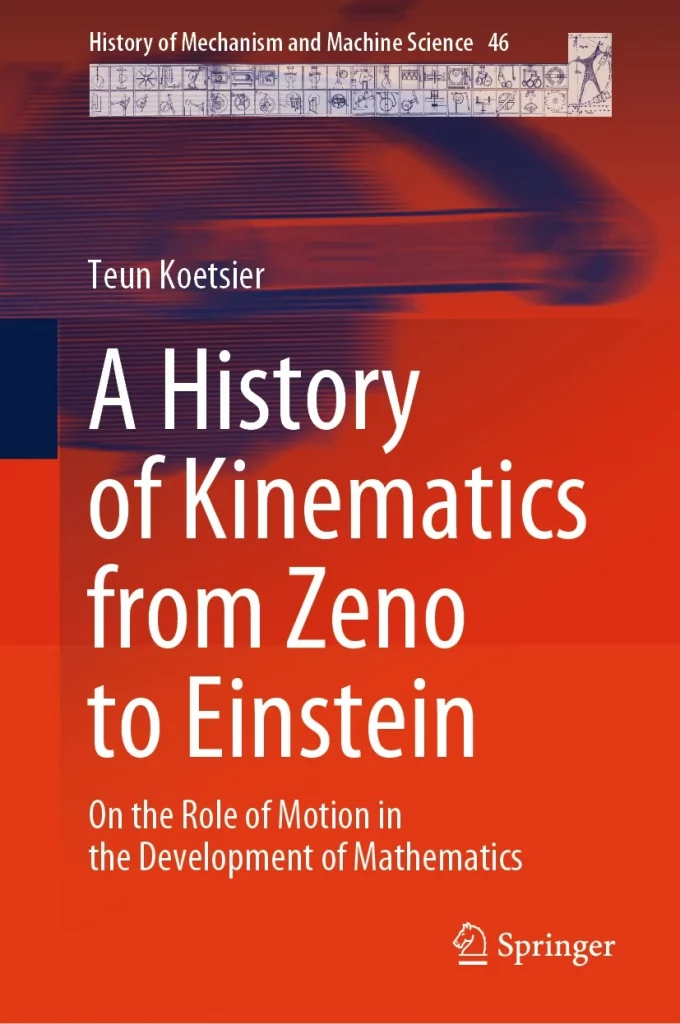
A History of Kinematics from Zeno to Einstein by Teun Koetsier
Read full article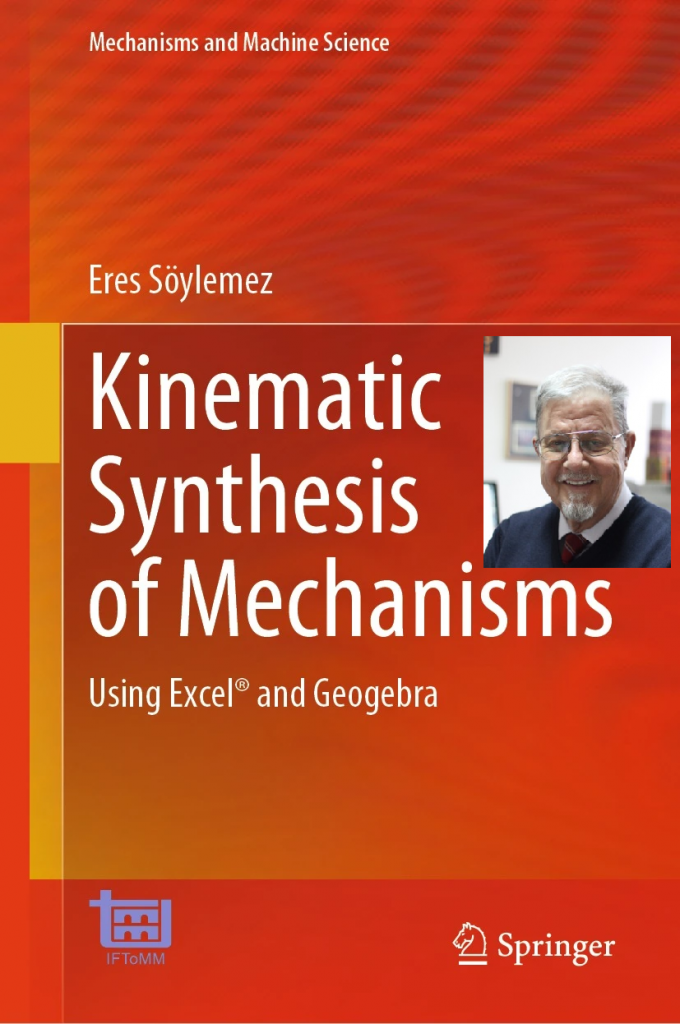
The first Springer MMS series book from MO Türkiye by Prof. Eres Söylemez
Read full article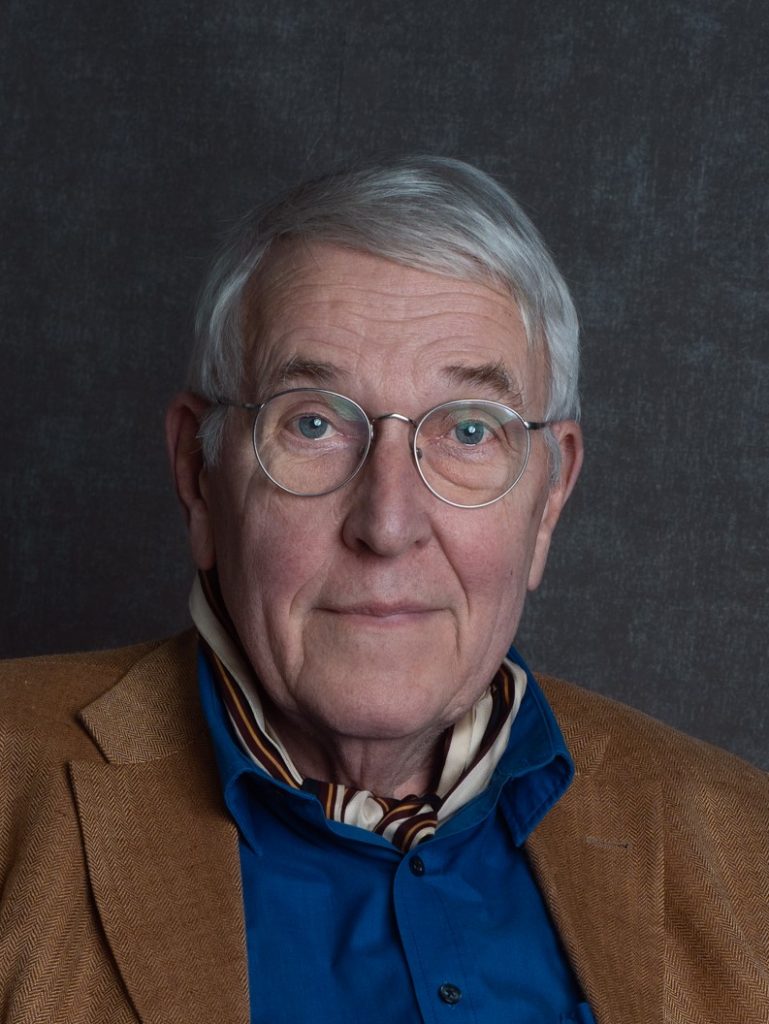
The video of the first-ever IFToMM Webinar by Prof. Teun Koetsier is available for the viewers!
Read full article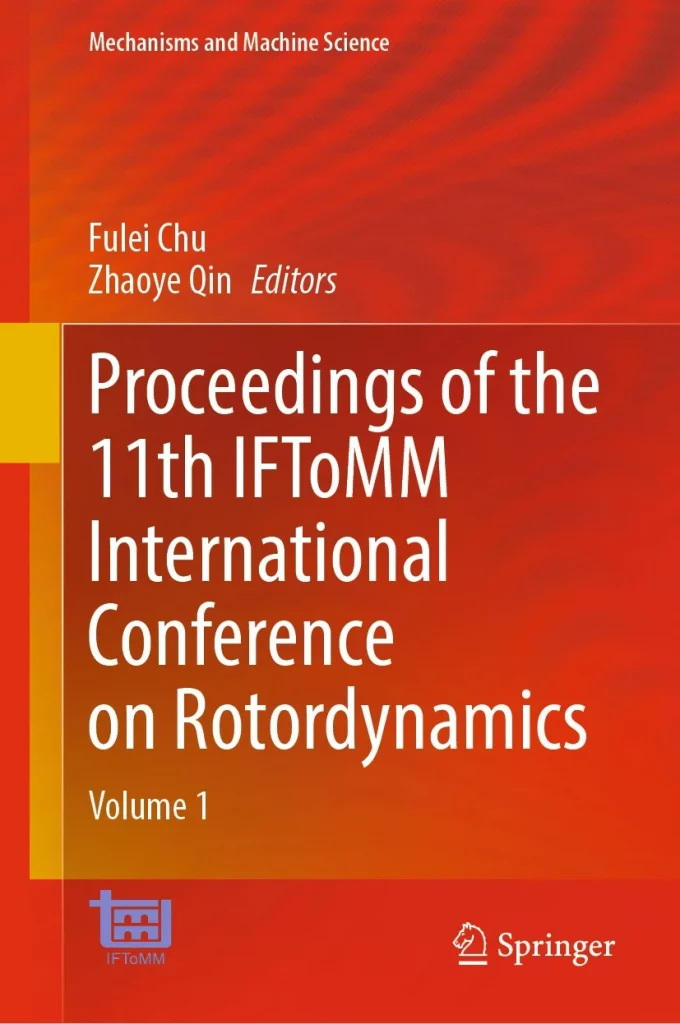
First Free Access to Springer Conference Proceedings – 11th IFToMM International Conference on Rotordynamics
Read full article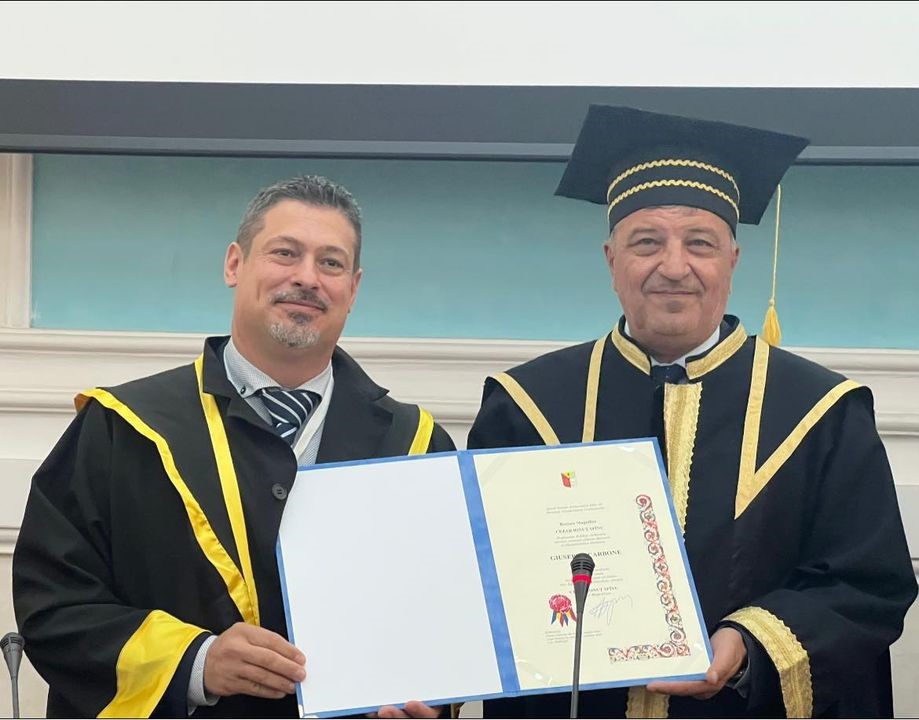
University of Craiova awarded an honoris causa doctoral degree to Prof. Giuseppe Carbone
Read full article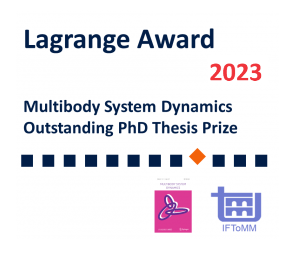
Lagrange Award – Multibody System Dynamics Outstanding PhD Thesis Prize 2023 now open for applications!
Read full article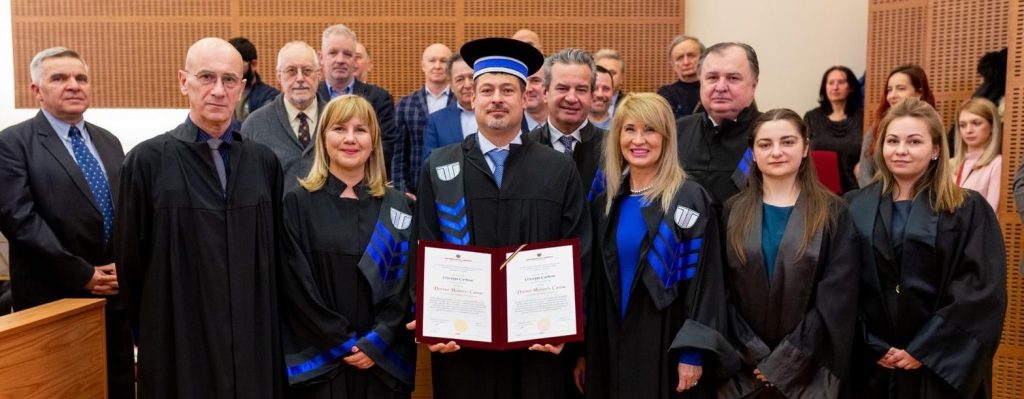
Technical University of Cluj-Napoca (UTCN) awarded the title of Doctor Honoris Causa to Prof. Giuseppe CARBONE (Chair of IFToMM TC on Robotics and Mec…
Read full article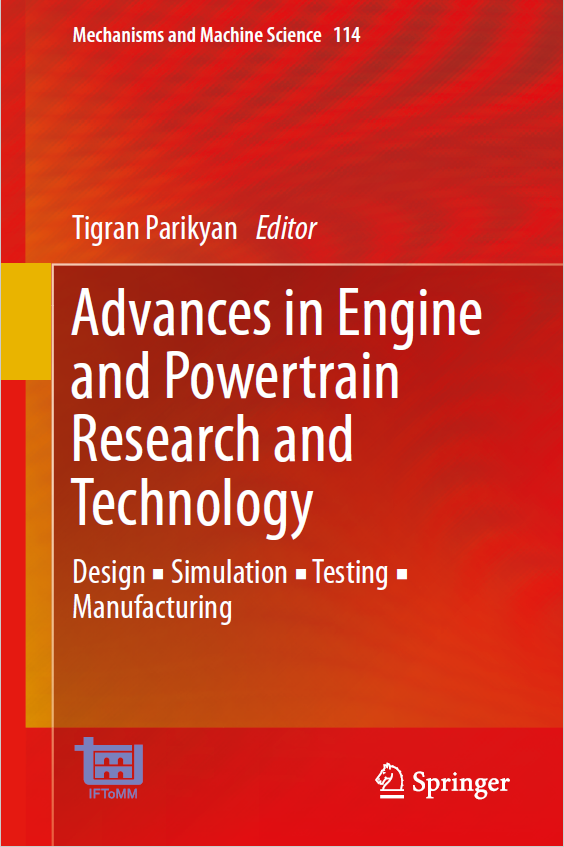
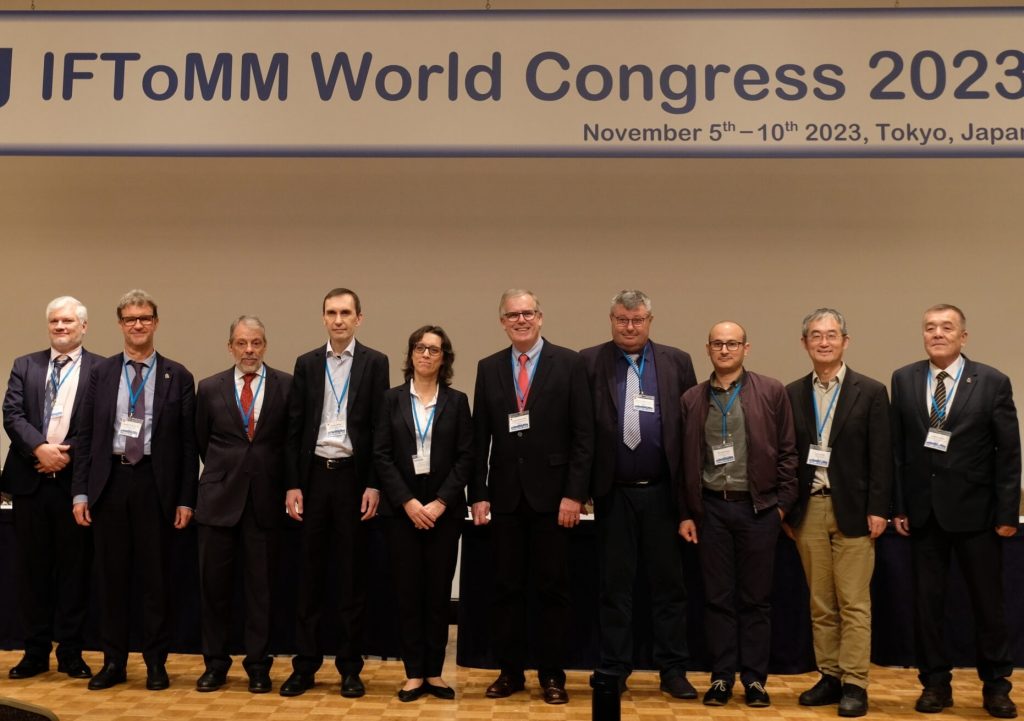
 Find your
Find your